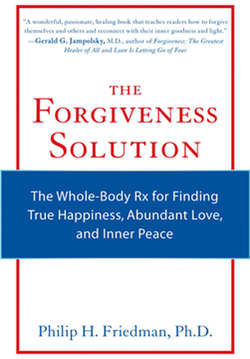Читать книгу The Forgiveness Solution - Philip H. Friedman - Страница 22
На сайте Литреса книга снята с продажи.
Diagram 1. Summary of Relationship between Forgiveness, Beliefs, and Emotions and Well-Being
ОглавлениеForgiving people tend to be much more optimistic, hopeful, and trusting and have high levels of self-worth and positive beliefs. Forgiving people are also much likelier to be warmer, friendlier, loving, peaceful, and joyful. They have a greater self-esteem and self-worth, are more empathetic, and have a greater sense of meaning and purpose in life.
On the other hand, people who are unforgiving are much more likely to experience emotional distress in general and, specifically, higher levels of depression, anxiety, guilt, anger, and resentment. They are also more likely to be hostile, vengeful, and vulnerable and to frequently ruminate and obsess over perceived hurts. Unforgiving people also have more physical symptoms, according to the scientific research, and are more interpersonally and emotionally sensitive than forgiving people.
You may experience all or some of these negative feelings and beliefs and some or all of the positive ones. Wherever you are is okay. We're just trying to identify your starting point. This says nothing about your character or whether you are a good person. It is so important not to judge yourself.
I encourage you to come back to these checklists and fill them out weekly or monthly to see where you are and how much progress you have made as we go through the exercises in the book together.
